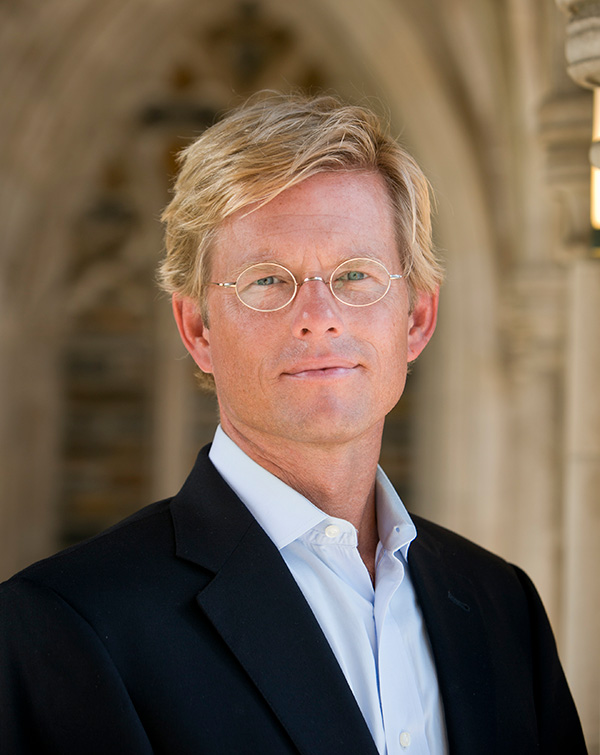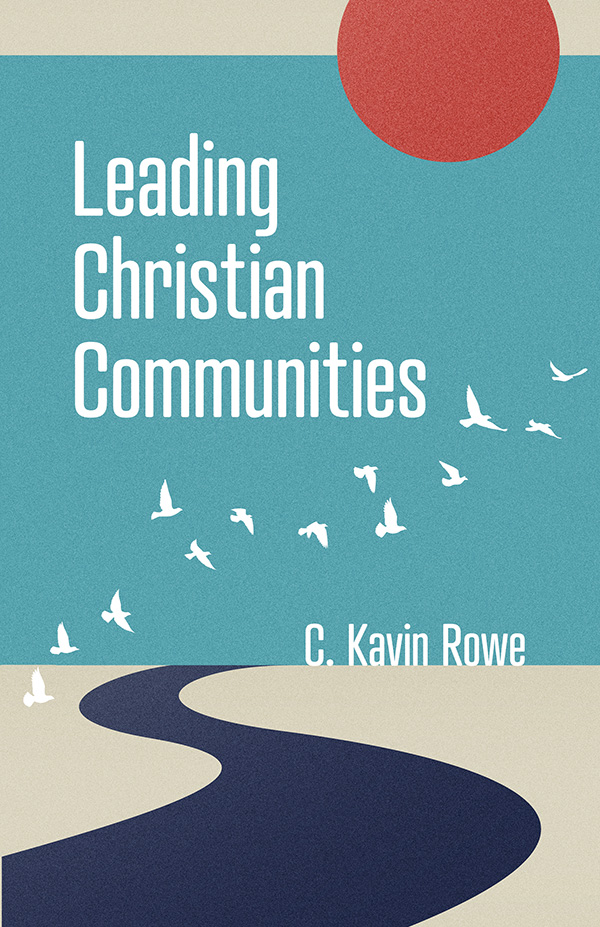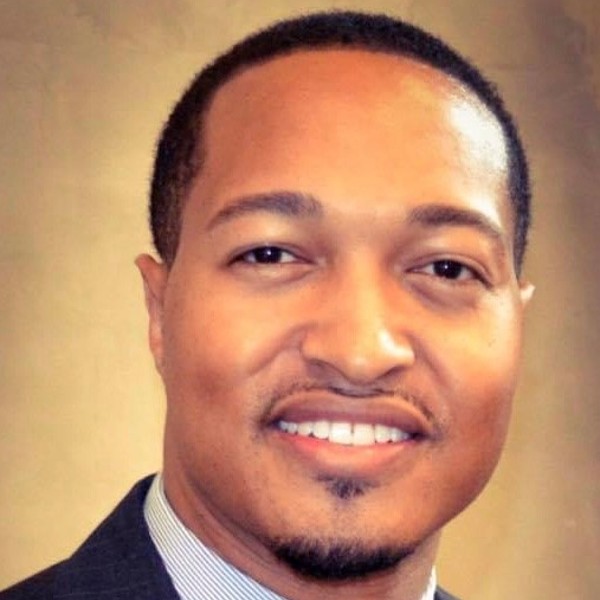With roots in studies of Acts and the Gospel of Luke, C. Kavin Rowe’s book “Leading Christian Communities” emphasizes that Christian leadership requires character.
The book collates reflections from years of Rowe’s writing and binds them together with the question of what impact reflection on God and Scripture makes on Christian leadership within institutions.
Among the topics Rowe covers are humor, reading, networks, and the foci of Christmas and Easter, but he emphasizes that the character of Christian leaders is make-or-break for their impact.
Without character, Rowe notes, “they undermine their leadership in every capacity.”
Rowe is vice dean for faculty and the George Washington Ivey Distinguished Professor of New Testament at Duke Divinity School.
He spoke with Faith & Leadership’s Chris Karnadi about the book. The following is an edited transcript.
Faith & Leadership: What do you hope readers would learn from the book?

C. Kavin Rowe: One would be that leading an institution as a Christian is an adventure. It is anything but boring, and it is anything but easy.
It requires from us all that we have to give, really, in the sense that it demands that we think about the Lord and that we behave in ways that show that we think about the Lord — [ways that] actually matter. It gives us a joy as it also really calls forth a kind of seriousness about repentance and forgiveness and sin and the texture of Christian life.
I also hope they would learn that if you want to think like a Christian as a leader, you can be interested in any and every thing; there isn’t a sphere called leadership that’s just by itself and then all these other things out there that are not leadership.
Leadership, for Christians, is trying to lead in light of who God is and what he has made and what he is redeeming, and that means God and everything else. So being a leader requires you to be attentive to a vast range of things and to see all those things in the light of Christ.
There’s much more, but the last thing that I’ll say is that the way we show up in the world matters as much as anything else for our effectiveness as Christian leaders, because it’s not just a skill set.
F&L: So Christian leadership is holistic?
CKR: That’s right. All the stuff about numbers, every other detail can be there — you’re effective, you can you balance the budget, whatever it is. But if that unity between what we’re claiming as Christians and the way we’re living is fundamentally broken, then it undermines your leadership completely.
I’m not saying leaders need to be perfectly holy. Having character just means doing the patterns of Christian life. If that is intact, then it also gives a real boost to your leadership. People are drawn to that. It has authenticity.
F&L: How did your expertise on Acts create the backbone of this book?
CKR: In part, it was a series of conversations over time with Greg Jones and people way back in the early or mid-2000s about Acts and the way it might inform how we think about not just Christian leadership but particular patterns of thriving.
You can think about leadership in the abstract; that’s one set of questions. What does a leader need? But Christians ought to be thinking about what makes Christian leaders thrive, and Acts is a book of thriving churches.
It’s not a book of churches without problems, but it is a book about churches that are really burgeoning, growing and excited about the gospel, working through their differences and their struggles in light of the pattern of Christ and discipleship and the fundamentals of Christian existence.
F&L: One of the things that you mention in the book is networking. What should Christian networks look like today?
CKR: There’s no one-size-fits-all on that, because there are so many Christians and so many different forms of Christian life, ecclesial and otherwise. But the basic point of the early Christians was that we need to be connected to one another.
If we’re going to have any chance of being Christian in the world at all, we’re going to need to have brothers and sisters who are also trying to be Christians in the world. The imagination in Acts was a global one. All Christians in the Mediterranean world needed to be connected to one another, stitched together in this body of Christ.
That’s one of the things we need to be thinking about today — our global reach, and not just who are our brothers and sisters nearby and who are our brothers and sisters in our backyard.
All of that really matters, and local ministry, of course, is the seed of all of that. But who are our brothers and sisters elsewhere, and how are we connected to them? How is our imagination enriched by our connection with them, and how is our Christian life enriched by our connection with them?
F&L: Why is humor an important part of Christian leadership?
CKR: Well, one, it’s as simple as, “Life is so hard, so you need humor.” If you don’t know how to laugh, you’ll go under.
That’s true for leaders themselves, and it’s true for organizations and for institutions. Ultimately, the gospel is a word of joy, and that joy, when there’s no humor, is hard to hear and gets smothered.
Conversely, when there’s laughter and when there’s humor, you can discover joy even in the darkest places. It’s important for a leader to be able to set the tone with a real push, a real reach for joy, and humor is one of the ways that we discover joy.
And some of that, I’d say, is the ability to laugh at oneself as a leader. Leaders that are too uptight, who can’t find things funny about their foibles and mistakes and so on, are not that fun to be around and are probably going to be short-lived or at least pretty unhappy.
I’m of the view that Luke was Paul’s traveling companion and knew him, and so then he pokes fun at him from time to time as good friends might.
He’s got this one passage [in Acts] where Paul is talking through the night, and there’s a youth named Eutychus sitting in the window of a building of some sort, and he falls and dies. And the point is that Paul talked this guy to death. He just went on and on and on.
Of course, Paul goes down and prays for Eutychus, and he comes back to life, so it’s not serious. Otherwise, it would be tragic. But instead, it’s supposed to be funny.
F&L: Another thing that you mentioned as important for Christian leaders is reading. What do you think are some good reading habits for Christian leaders?
CKR: There are some things to avoid. Don’t read trash. We have only the words to think with that we take in. What we take in turns out to be the thoughts that we have.
So it’s important to take in words that will help you to think well as a Christian and to live well as a Christian and to have your imagination shaped Christianly. And by that I don’t mean just read only the Bible or only Christian works or very serious holy things or whatever. I mean not taking in things that take your imagination in places it shouldn’t go.
Good habits would then be reading things that write on your soul, the kind of soul that you think you need to be a Christian. And that’s going to vary quite a bit. There are a lot of good books out there.
It’s getting harder for people to read, me included, and that is due to texts and emails and all the stuff we have to do or choose to do all the time. Those are fast reads. They’re snippets. They’re short. And that all works against a patient turning of the page and the ability to follow a story or an argument, depending on what you’re reading.
The things that we read — books, texts or whatever — they’re not inert. They’re alive, and they have their own power, and that’s part of the wonder of reading. They can shape you for good or for ill, but they’re not just sitting there with no power in them. They’re very powerful.
F&L: Where do you see traditioned innovation biblically?
CKR: I see it from start to finish. From Genesis to Revelation, there’s an obvious sense in which even the existence of the Bible speaks of tradition. It wouldn’t be in its current form or its past form or even survive at all if there weren’t people to pass it along and say, “Yeah, that’s who we are. That’s the text that we find our way by. That’s the story that is ours.” So there’s a tradition that is already part of what Scripture is.
At the same time, you keep reading Scripture, because the next step in your tradition isn’t given to you. You don’t know the future. And so you read the Scripture to get a sense of how to take the next step. And how to take the next step is informed by where and how you’ve traveled up to that next step, and that’s the tradition.
It doesn’t tell you, “OK, now take one step this way or that way.” That’s something you have to discover anew. That rhythm of stepping forward and looking back, looking back and stepping forward, that rhythm is in Scripture from start to finish.
F&L: Is there anything else that, as you think about this book, you wanted to be sure to add?
CKR: The book doesn’t have to be read from front to back. You can just dip in and read a reflection, and that’s a good thing. That’s part of the way it was structured, so that you could do that if you have a topic you’re interested in, for example, or just want to read.
A lot of leaders got in touch with me about the reflection on silence, for example, because they’re so busy, and they just want to think about what is silence. You don’t want to read 10,000 words on it. You just want to read a few thoughts. You can do that.
On the other hand, it does present a picture so that if you were interested in what kind of structured imagination could you develop as a leader, then you could read from front to back too.


















